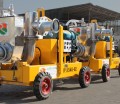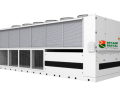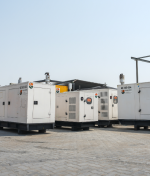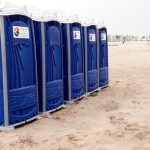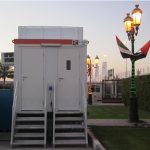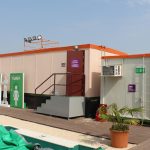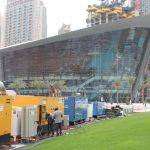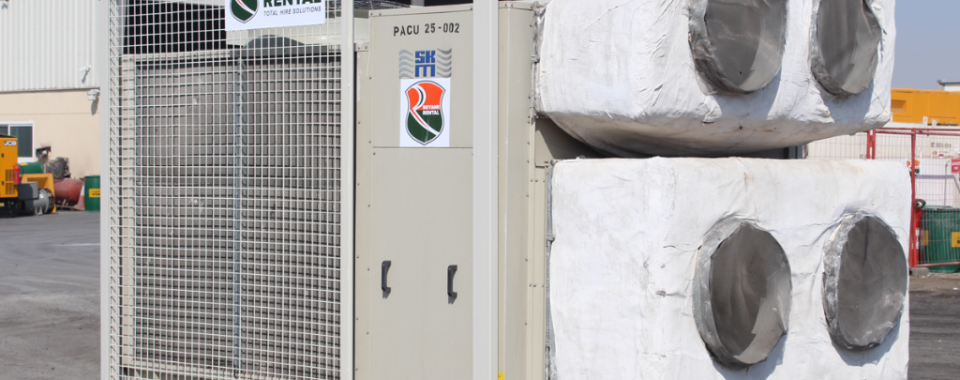
- September 8, 2023
- by reyamirental
- Equipment Rental, HVAC Units
The Role of HVAC in Indoor Air Quality and Health
In this world, people spend most of the portion of their lives indoors, whether it’s at home, the office, or other indoor environments. Indoor air quality is a critical aspect of overall health and wellbeing. Indoor air quality has a profound impact on our health, comfort, and overall well-being. One crucial factor that influences air quality is the Heating, Ventilation, and Air Conditioning (HVAC) system. With people spending more time indoors than ever before, it’s important to understand the impact that HVAC systems can have on indoor air quality.
HVAC systems helps you to stay cool in the heat and warm in the cold. Reyami Rental is one-stop solution for equipment rental services which provides a wide range of equipment options for all types of events and projects. Whether you have a temporary project, an event, or a situation that requires additional cooling or heating, HVAC system rentals are the ideal solution. We offer a wide range of HVAC systems for rental that are designed to meet the specific needs of your project.
The Role of HVAC Systems
- Ventilation: Proper ventilation is a cornerstone of good IAQ. HVAC systems help exchange indoor air with fresh outdoor air, reducing the concentration of indoor pollutants and replenishing oxygen levels. Insufficient ventilation can lead to a buildup of pollutants like volatile organic compounds (VOCs), carbon dioxide, and other airborne contaminants.
- Filtration: HVAC systems are equipped with filters that trap dust, pollen, pet dander, mold spores, and other particles, preventing them from circulating through the indoor air. High-efficiency particulate air (HEPA) filters are especially effective in capturing even smaller particles, contributing to cleaner air.
- Humidity Control: Maintaining the right humidity level is vital for IAQ. HVAC systems can regulate indoor humidity, inhibiting the growth of mold and dust mites. Proper humidity levels also promote comfort and reduce the risk of respiratory problems.
- Temperature Regulation: A comfortable temperature not only enhances occupant comfort but also affects indoor air quality. Extreme temperatures can encourage the release of pollutants from building materials and furnishings, affecting IAQ negatively.
- Air Cleaning Technologies: Advanced HVAC systems incorporate air purification technologies such as UV-C lights, electrostatic precipitators, and photocatalytic oxidation to neutralize or eliminate harmful pollutants like bacteria, viruses, and VOCs.
Tips for Improving Indoor Air Quality
To ensure that HVAC systems effectively contribute to indoor air quality and health, regular maintenance is essential:
- Filter Replacement: Regularly change or clean filters according to the manufacturer’s recommendations. Clogged filters can hinder airflow and reduce filtration efficiency.
- Duct Cleaning: Over time, ductwork can accumulate dust, debris, and even mold. Periodic professional duct cleaning helps maintain healthy indoor air circulation.
- Preventive Maintenance: Schedule routine inspections and maintenance by HVAC professionals to identify and address issues that could impact air quality.
- Proper Sizing: Ensure that your HVAC system is appropriately sized for your space. An oversized system may lead to inefficient temperature and humidity control.
The quality of the air we breathe is critical to our health, and HVAC systems play a crucial role in maintaining this air quality. While HVAC systems can contribute to indoor air pollution, they can also mitigate it when properly maintained and used. HVAC systems act as the guardians of indoor air quality, regulating ventilation, humidity, filtration, and temperature. By understanding the role of HVAC systems and maintaining them diligently, we can create indoor environments that promote good health, comfort, and a better quality of life for all occupants.

